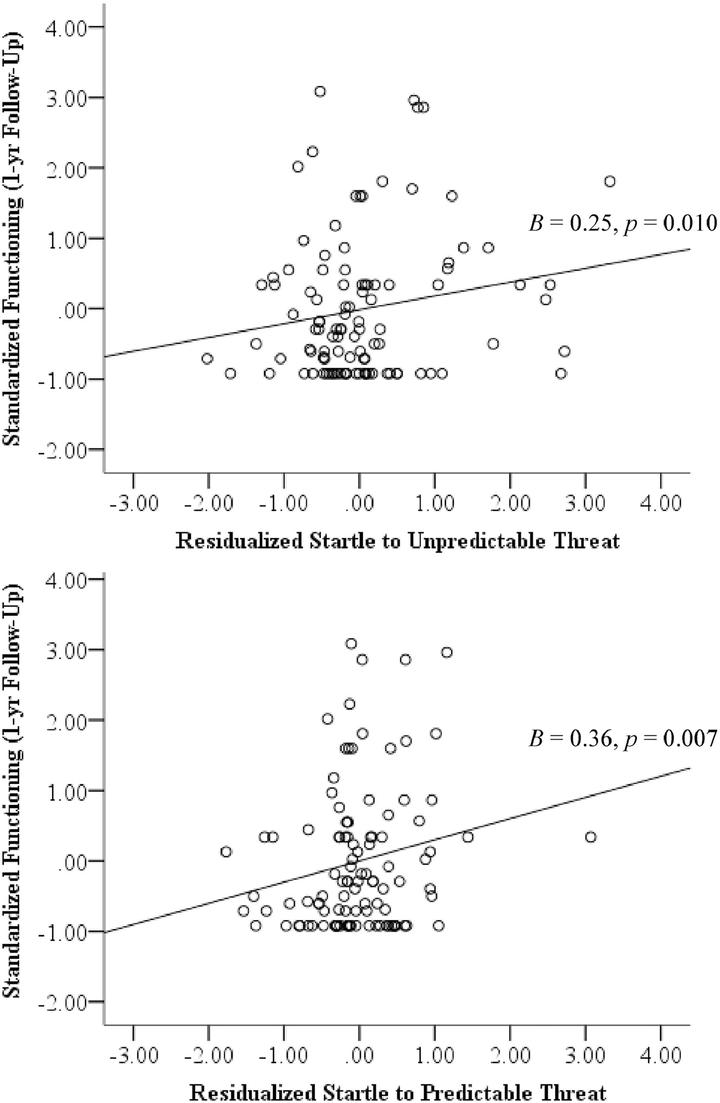Startle during threat longitudinally predicts functional impairment independent of DSM diagnoses

Abstract
Heightened responsivity to unpredictable, and perhaps predictable, threat characterizes some internalizing disorders and may be vulnerability factors for psychopathology as well. However, few studies have directly tested whether individual differences in unpredictable and/or predictable threat responding longitudinally predict symptoms of psychopathology and functional outcomes. Examining functioning is particularly important given that functioning is separable from symptoms of psychopathology. The present study examined whether electromyography startle measures of predictable and/or unpredictable threat responding was associated with interviewer-assessed symptoms of internalizing psychopathology and functional impairment at baseline (n = 409) and one-year follow-up (n = 104). Elevated startle responding to unpredictable and predictable threat longitudinally predicted a worsening of functioning over time and this effect was independent of change of symptoms over time. Importantly, threat responding at baseline predicted functional impairment during the follow-up independent of the effects of DSM-defined fear-based (e.g., panic disorder) or distress-misery (e.g., major depressive disorder) internalizing disorders. These findings provide initial support for the incremental validity of neurobiological vulnerability markers of threat responding over and above DSM disorders and highlight the importance of distinguishing functional outcomes from symptom outcomes.